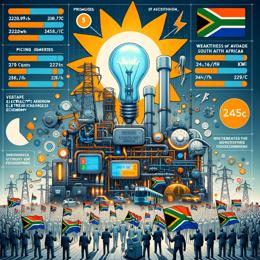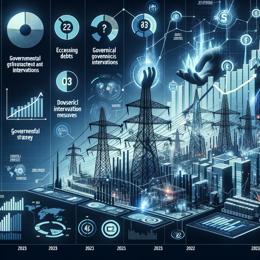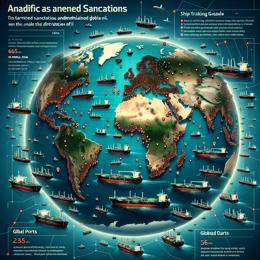Image created by AI
Calls for Accountability at Petro SA Amidst Collapsed Offshore Gas Deal Controversy
The South African energy sector is in the spotlight after recent revelations by amaBhungane investigative journalists about a staggering R21 billion deal between Petro SA, the national oil company, and a now-liquidated firm, Equator Holdings. The questionable contract was intended for refurbishing Petro SA’s offshore gas infrastructure, but details of the deal have raised serious alarm bells within governance and industry circles.
Mineral and Resources Minister Gwede Mantashe is under pressure to either validate or refute the allegations made about the dubious nature of the deal. Equator Holdings, which won the massive tender, was astonishingly liquidated due to its failure to settle a debt under a million Rand to a soccer player from a team that the company owned – an incident highlighting blatant financial mismanagement.
Adding to concerns, the Department of Mineral Resources and Energy has been reticent in releasing the record of decision, which would shed light on the rationale behind awarding the tender to Equator Holdings. Such opacity has raised eyebrows and intensified the call for transparency from various stakeholders, including those in the parliamentary setting.
Recent developments in Parliament saw fervent calls for the department to be forthright and release the records. The apprehension stems from the possibility that the amaBhungane report, if verified, could not only suggest a dysfunction within Petro SA's tender processes but also implicate the company's leadership in grave oversight or potential malfeasance.
Should the allegations hold true, it would underscore a troubling narrative of weak corporate governance within a key state-owned enterprise—a scenario South Africa can ill-afford given the current imperative to rejuvenate its economy from the depths of mismanagement and corruption. The implication is clear: the leadership of Petro SA during the time of the contract must either be held to account or removed.
Furthermore, should Petro SA's leadership go unscathed, the responsibility may well be escalated to include Minister Mantashe himself. In a country striving to overcome economic challenges and restore investor confidence, the tolerance for such governance lapses is waning, and accountability is becoming a clarion call from across the sphere of civil society and the political divide.
In the immediate term, the focus remains squarely on Minister Mantashe's next course of action. His response will be a barometer for the government's commitment to transparency and governance reform not just in energy, but across all essence of public administration and state-owned entities. A failure to act decisively could have far-reaching implications for the credibility and effectiveness of South Africa's efforts to combat corruption and promote sustainable economic recovery.










